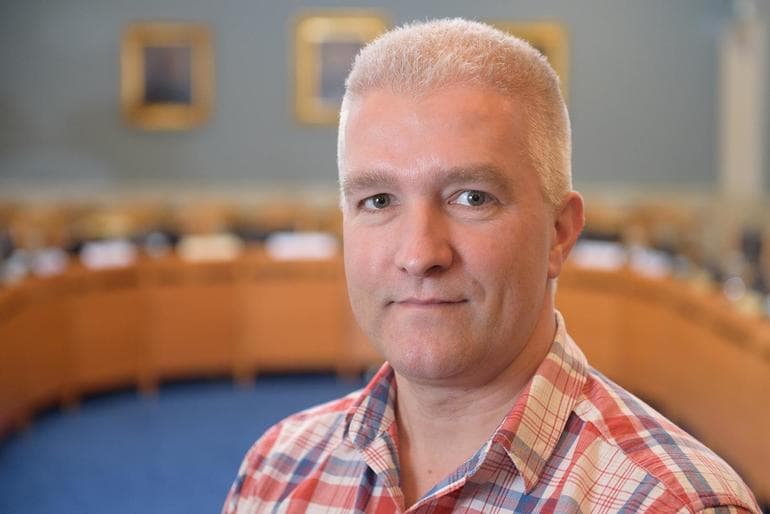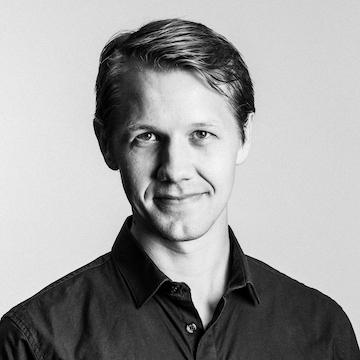
RANDERS: In a new overview of the development of renewable electricity production from Energinet's Energy Data Service, Randers Municipality accounts for the largest total progress from 2019 to 2024.
During that period, the municipality has almost doubled the amount of green electricity produced in 2019 from 353.5 GWh to 688.8 GWh in 2024, which has moved Randers from 8th place to 3rd place among the municipalities with the highest electricity production from renewable energy sources.
And that's good news, says Frank Nørgaard (DF), chairman of the Environment and Technology Committee.
- It's good that we are one of those who deliver the most, and that's good news for the climate, he says.
However, it is also news that has two angles, he believes.
- But having said that, I also believe that we are about to have reached the limit of how much renewable energy we need to add to the municipality, and how much the local citizens can live with. Therefore, it is time for more municipalities to join the fight and start delivering, says Frank Nørgaard to DK Nyt.
Frank Nørgaard was recently present at a citizens' meeting about a renewable energy project near the village of Havndal, and the atmosphere here was far from positive.
- I have been involved for a number of years, and I have never experienced such a bad atmosphere at a citizens' meeting about a project. It means a lot to the citizens affected, he says.
- I also experience that there are several in the city council who have previously advocated green initiatives and efforts, who have also begun to rethink the energy strategy and put the brakes on.
Bad mood ahead of local elections
In the spring, a majority in the city council adopted a new energy strategy. It means that Randers Municipality must be self-sufficient in green energy and have achieved climate neutrality by 2045.
- Almost 90 pct. of our electricity consumption is covered by green electricity from renewable energy plants, and we have a unique opportunity to both become self-sufficient in green energy and at the same time achieve climate neutrality, said Mayor Torben Hansen (S) in this connection.
With the adoption of the strategy, the city council has decided to resume the consideration of a number of new energy plants, which had otherwise been put on hold back in 2022.
- With the Randers Energy Strategy, we have now set a direction for achieving these ambitious but realistic goals. And this must happen in a way where renewable energy creates value for our local community – and where the green transition creates jobs and attracts companies to the municipality, said Torben Hansen.
But even though the ambition is that the installation of renewable energy plants should also benefit the locals, and that the government has adopted a number of measures to make it more palatable to have renewable energy plants as neighbors with, for example, higher neighbor compensation.
- Even though the government has tried various measures, there are still many places where you don't experience that enough consideration is being given. Here you have the experience of having all the inconveniences in rural areas while producing electricity for the cities.
He himself points out that there is a need to be able to give the neighbors of renewable energy plants benefits such as subsidies for heat pumps and cheap green electricity instead of just different types of compensation.
- I think you can go a long way if you could present concrete benefits to the locals, says Frank Nørgaard.
He also adds that in the KV25 election he is running in an electoral alliance – consisting of the Conservative People's Party, the Danish Democrats and the Liberal Alliance – which wants to further develop the rural districts, but without that development being dependent on renewable energy.
DF and Liberal Alliance voted against the new energy strategy in the spring, while the Conservatives and the Danish Democrats are not currently on the city council.
Text, graphics, images, sound, and other content on this website are protected under copyright law. DK Medier reserves all rights to the content, including the right to exploit the content for the purpose of text and data mining, cf. Section 11b of the Copyright Act and Article 4 of the DSM Directive.
Customers with IP agreements/major customer agreements may only share Danish Offshore Industry articles internally for the purpose of handling specific cases. Sharing in connection with specific cases refers to journaling, archiving, or similar uses.
Customers with a personal subscription/login may not share Danish Offshore Industry articles with individuals who do not themselves have a personal subscription to Danish Offshore Industry.
Any deviation from the above requires written consent from DK Medier.
























